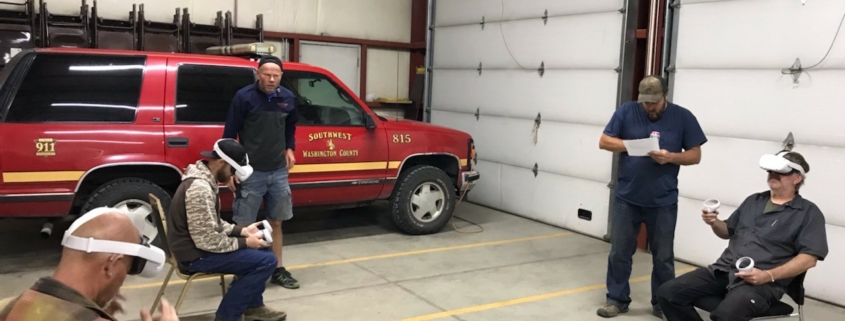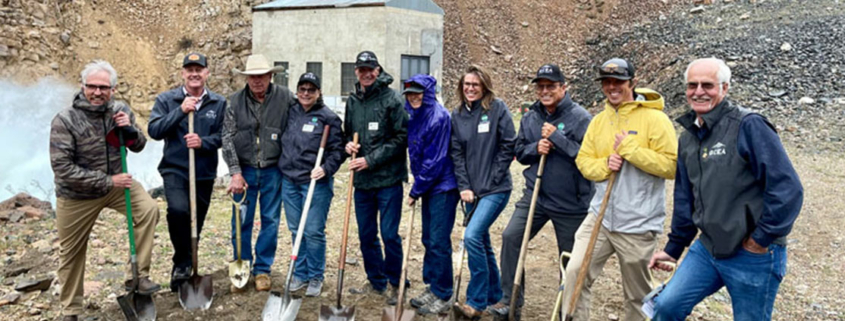MCREA Uses VR Technology as Part of Safety Program
An innovative use of technology is giving Coloradans on the eastern plains invaluable and unique experiences to learn how to properly approach electrical safety. Morgan County REA now includes virtual reality headset technology as a part of its safety training program. Wearing a VR headset allows a user to experience virtual simulations that are designed to create an immersive environment. The virtual experience elicits the same stress response as some real-life situations, so if the individual is faced with the same scenario in real life, they are prepared and know how to handle the situation safely.
One of the scenarios the Fort Morgan-based electric co-op offers in their VR safety training is downed power line safety training. The simulation puts the user at the scene of an accident where a vehicle hits a power pole and the power line has fallen on the car. The user learns what steps to take to safely remove themselves from this dangerous situation. Another training simulation available through the VR headsets includes farm hazards. Users can participate in a variety of tasks on a farm and the VR experience educates them about how to handle unexpected situations. In April, personnel from the Southwest Washington County Fire Protection District also implemented the use of MCREA’s VR headsets as part of their staff training program for power line safety.
One of the benefits of utilizing VR technology as a safety training tool is the high retention rate. Because individuals have already mentally experienced the scenario, it is easier to recall important information. A study by the Masie Report shows that VR simulations have a retention rate of 75%, significantly higher than the 10% retention rate from reading and the 5% from listening to lectures. A high retention rate is crucial in safety training, when keeping individuals from harm is the top priority. Hands-on experience is the best education, and the addition of this interactive tool will contribute to a more comprehensive safety program moving forward. The implementation of VR technology at MCREA will be beneficial for the co-op and its members. For more information, visit mcrea.org.
—
Colorado’s electric cooperatives are committed to maintaining reliability and affordable electricity across the state. Click here for more examples of how we are maintaining reliability and affordable electricity


 GCEA 2023
GCEA 2023